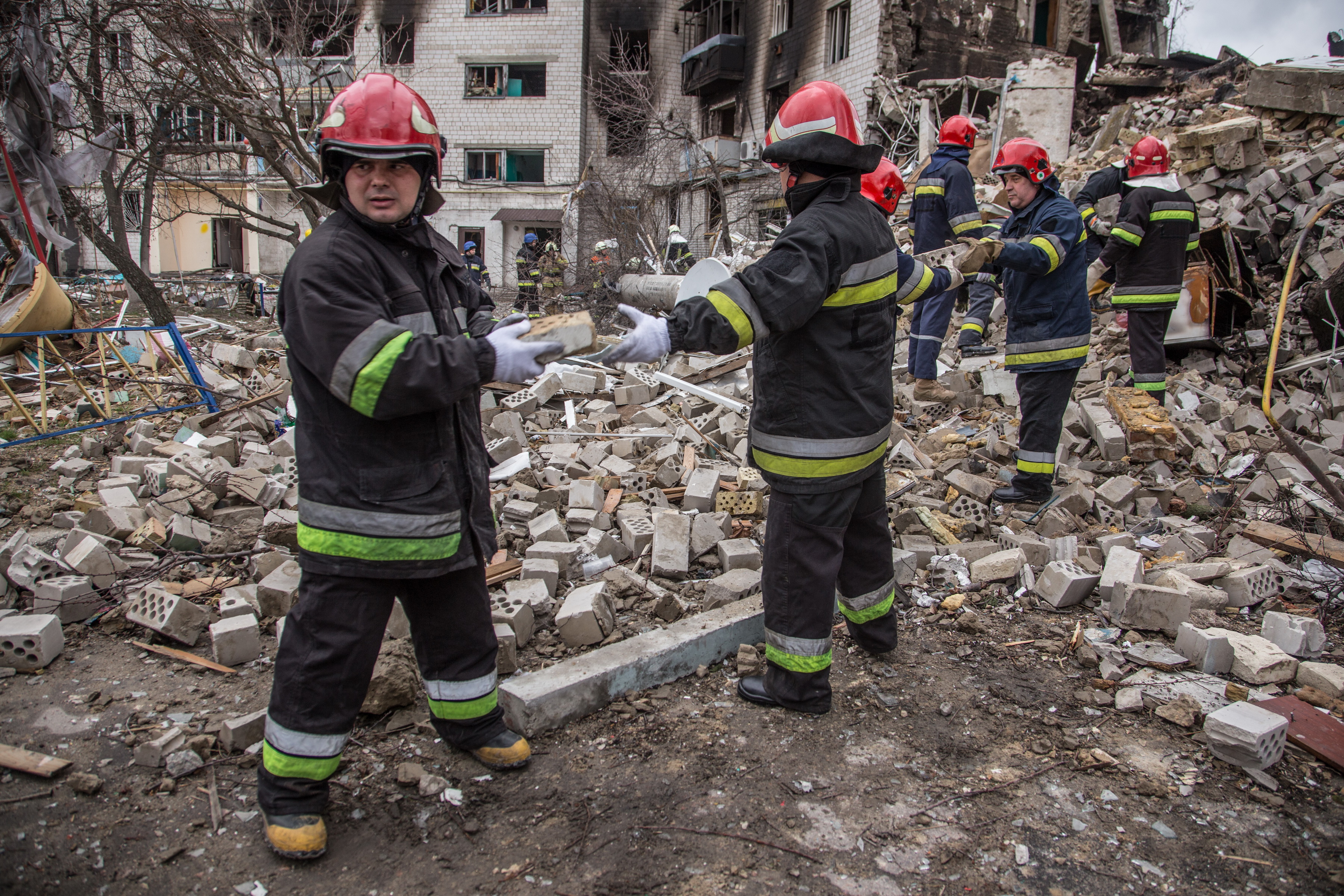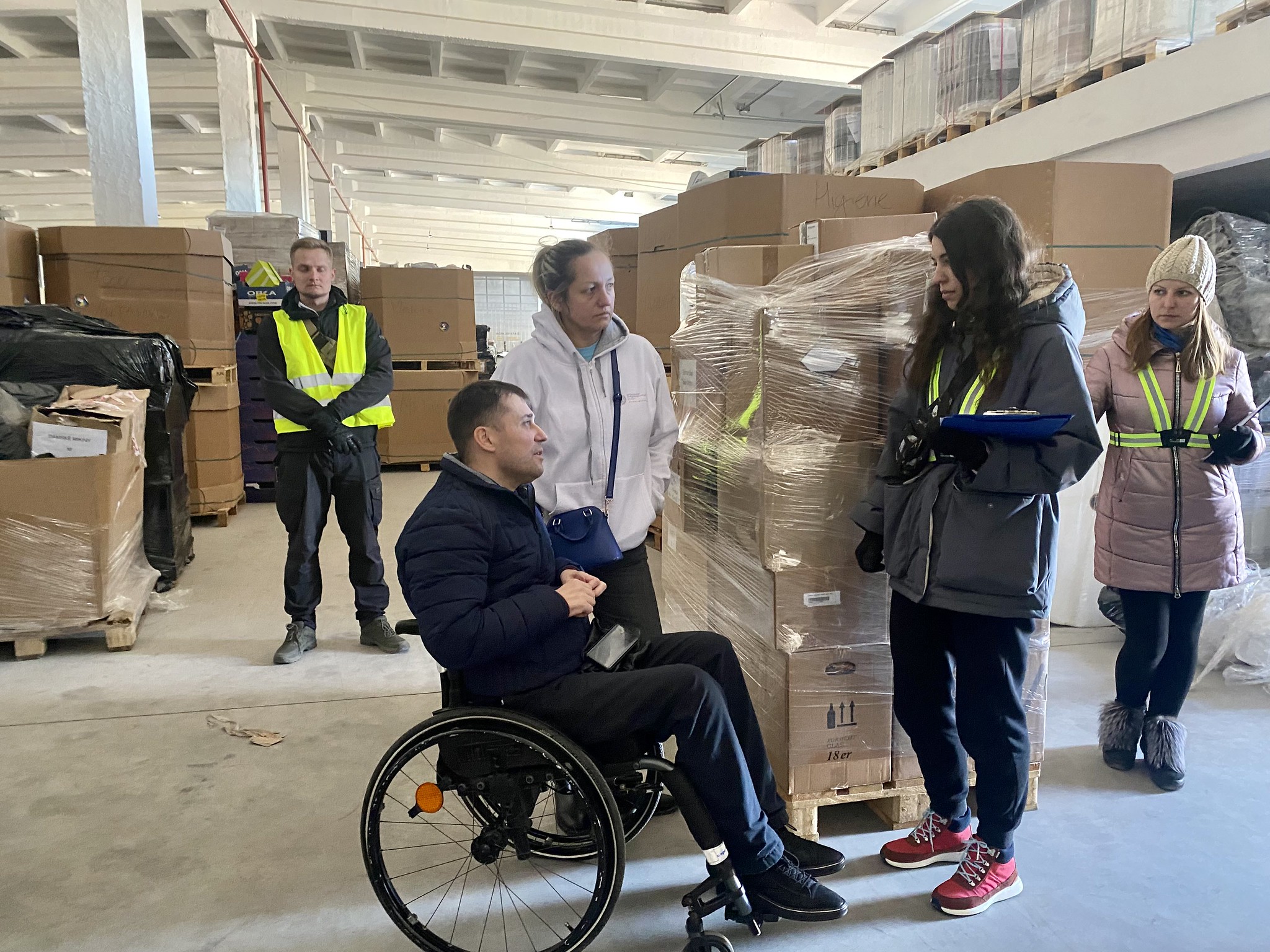Response to the war in Ukraine
United Nations Development Programme in Ukraine Recovery Framework
The war in Ukraine has caused a tremendous loss of life and livelihoods, putting stress on the economy, and forcing millions of people to leave their homes. As the fighting continues, the negative repercussions ripple across Ukraine, the region and the world.
Development Never Stops. Neither do we.
As the destruction intensifies, efforts to rebuild continue unabated. Relying on its expertise in converging humanitarian, development and peacebuilding goals, UNDP, as part of the coordinated UN response, is assisting the people and the Government of Ukraine to recover and reconstruct now, ensuring that immediate needs are linked to long-term goals. The work we implement today will have a long-term sustainable impact, supporting the country’s efforts to achieve the Sustainable Development Goals.
Leveraging its almost 30-year history in Ukraine and its established presence on the ground, and in close cooperation with state authorities and local communities, UNDP prioritizes approaches that are inclusive, just and green. Throughout the war, UNDP has been working with local authorities to sustain essential service provision, to facilitate access to humanitarian aid, to support mine clearance and debris removal so people can return home, and much, much more. UNDP’s support, in line with Government priorities, focuses on five key areas of support:
1. CRISIS RESPONSE

The Government of Ukraine is facing unprecedented challenges in responding to the impact of war. Assessments of war-induced damage and the coordination of recovery and reconstruction are key to prioritizing and sequencing vital recovery work. UNDP continues to support the government in maintaining the efficiency of its core functions, facilitating aid coordination, carrying out damage and needs assessments, and building the capacities of national and local authorities to develop recovery plans. UNDP is also supporting the reform agenda of the national government.
2. PROVISION OF PUBLIC SERVICES

UNDP is strengthening the capacities of local authorities to provide services, including through mobile offices and refurbished administrative centres. UNDP is also promoting digitalization to provide high quality e-services to people, including the most vulnerable. The delivery of social services, including to the most vulnerable, the rehabilitation of persons with disabilities (PwDs), support for people injured by the war, psychosocial support, and reintegration of veterans are the priorities in 2024.
3. RECONSTRUCTION FOR RECOVERY AND RETURN

UNDP is continuing to provide equipment to repair Ukraine’s energy system and ensure there are uninterrupted supplies of electricity, water, and heating to millions of people, while also further promoting energy efficiency and alternative energy sources. To enable the safe return of people to their communities, UNDP is facilitating mine action and debris clearance, the demolition of life-threatening structures, and the mitigation or containment of immediate environmental threats. UNDP is also supporting the rehabilitation of critical and social infrastructure, including, inter alia, utility services, schools, health centres, police and fire stations, and other municipal buildings. Additionally, to address the impact of the war on the environment, UNDP is supporting environmental protection, remediation, and sustainable natural resources management.
4. INCLUSIVE ECONOMIC GROWTH

To tackle the economic downturn caused by the war, UNDP is supporting MSMEs and relocated businesses in asset recovery, access to business infrastructure, and the reorientation of value chains. UNDP is preparing active labour market programmes (ALMPs) that combine emergency employment opportunities with vocational education and training (VET) at scale. De-risking investment, innovative financial mechanisms, and public-private dialogue are being enabled to accelerate economic recovery and spur economic growth. In addition, UNDP is helping relocated businesses, particularly those run by women and vulnerable groups, so that they can resume operations in their host communities. UNDP helps these businesses with market assessments, job creation projects, capital grants, and access to networks.
5. SOCIAL COHESION AND INCLUSION

UNDP is bolstering activities in support of social cohesion and collective resilience in war-affected communities, transit hubs, and hosting areas. This includes establishing local mechanisms for IDP/returnee integration, and platforms for dialogue to support immediate response and recovery planning. The inclusion of young people in recovery work is being further supported, alongside the enhancement of the active civic space. UNDP also supports access to justice and is strengthening the capacities of the Ombudsperson’s Office for human rights monitoring.
For more information: https://www.undp.org/ukraine/publications/undp-recovery-framework-ukraine

 Locations
Locations





